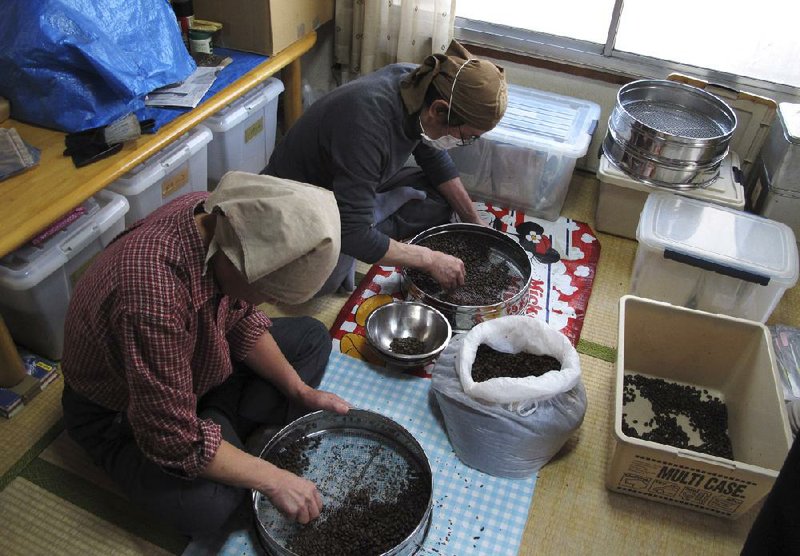TOKYO - Japanese Prime Minister Shinzo Abe has ticked off the easy items on his to-do list for economic revival.
There are indications that factories are churning out more cars and electronics. Corporate profits are up. Stock prices have surged 30 percent in the past year.
Despite his declaration that “Japan is back” in a September speech to the New York Stock Exchange, Abe faces a thornier challenge in ensuring that his “Abenomics” recovery spreads beyond boardrooms to the Japanese people.
Over the past two decades, Japan’s system of salaried jobs with full benefits has crumbled as companies struggled to stay afloat in cutthroat global markets, shifting much of their manufacturing overseas.Steady jobs in manufacturing and finance that moved abroad or became obsolete were replaced by low-paying service jobs such as convenience-store clerks and deliverers, especially for workers under 40.
About 40 percent of Japan’s workers, or triple the figure of just 30 years ago, are employed under part-time or nonregular contracts that pay far less than “salaryman” type jobs of the past. That hollowing out is undercutting the domestic demand that powers nearly three-quarters of business activity within Japan, compounding the effects of a shrinking and aging population.
“Up to now, it’s all been a minus,” said retiree Takeshi Onodera, when asked about Abenomics. “I don’t see any signs it’s made a difference.
“Really, it hasn’t reached us.”
Economic growth picked up modestly last year to 1.6 percent but fell short of expectations in the fourth quarter,prompting the Bank of Japan on Tuesday to top up its already plentiful stimulus.
Onodera’s pessimism is shared by some experts. They say the social and economic forces at play in Japan for more than a generation are too powerful to be overcome by Abe’s prescription of big government spending, monetary easing, a weak yen and dismantling barriers to competition.
Japan’s median household income of $38,700 in 2012 was down from $43,944 in 1997. Today’s workers are worse off than their parents and their incomes continued to fall in 2013 even as the initial successes of Abe’s policies rolled in.
On top of that, living costs are rising as Abe’s weak-yen policy that favors Japan’s exporters pushes up the cost of imported fuel and other goods.
Employers are reluctant to raise wages, a measure vital for an enduring recovery.Japanese consumers will take another hit in April when the sales tax is raised to 8 percent from 5 percent to help bridge the government’s growing budget deficit.
Many younger workers stuck in part-time or temporary jobs, with no benefits, only manage by living with their parents, said Seiichi Inagaki, a visiting professor at the Tokyo Institute of Technology. “It is unavoidable for them that the poverty rate will rise,” said Inagaki, a former Welfare Ministry official.
Speaking in parliament this month, Abe acknowledged that rising company profits haven’t gone into wages but insisted increases are inevitable as the economy picks up.
Flat or declining incomes were bearable until recently because the stagnation that followed the bursting of Japan’s bubble economy in the early 1990s was characterized by falling prices, or deflation. Now, costs are rising, with consumer prices up last year for the first time in half a decade.
Many companies are balking at Abe’s calls for higher wages, which they can ill afford. Some that have profited from the weaker yen are promising modest wage increases for forthcoming spring labor talks, but many other businesses, especially the smaller ones that employ a majority of Japanese, are being squeezed by higher costs for imported components and energy.
“Business and political circles do want to revive our economy, but without giving labor a bigger share of the economic pie obviously it won’t happen,” said Kenji Utsunomiya, a two-time candidate for Tokyo governor.
As Abe’s government weighs corporate and broader public interests, industry appears to have the upper hand.
Business, Pages 25 on 02/19/2014
